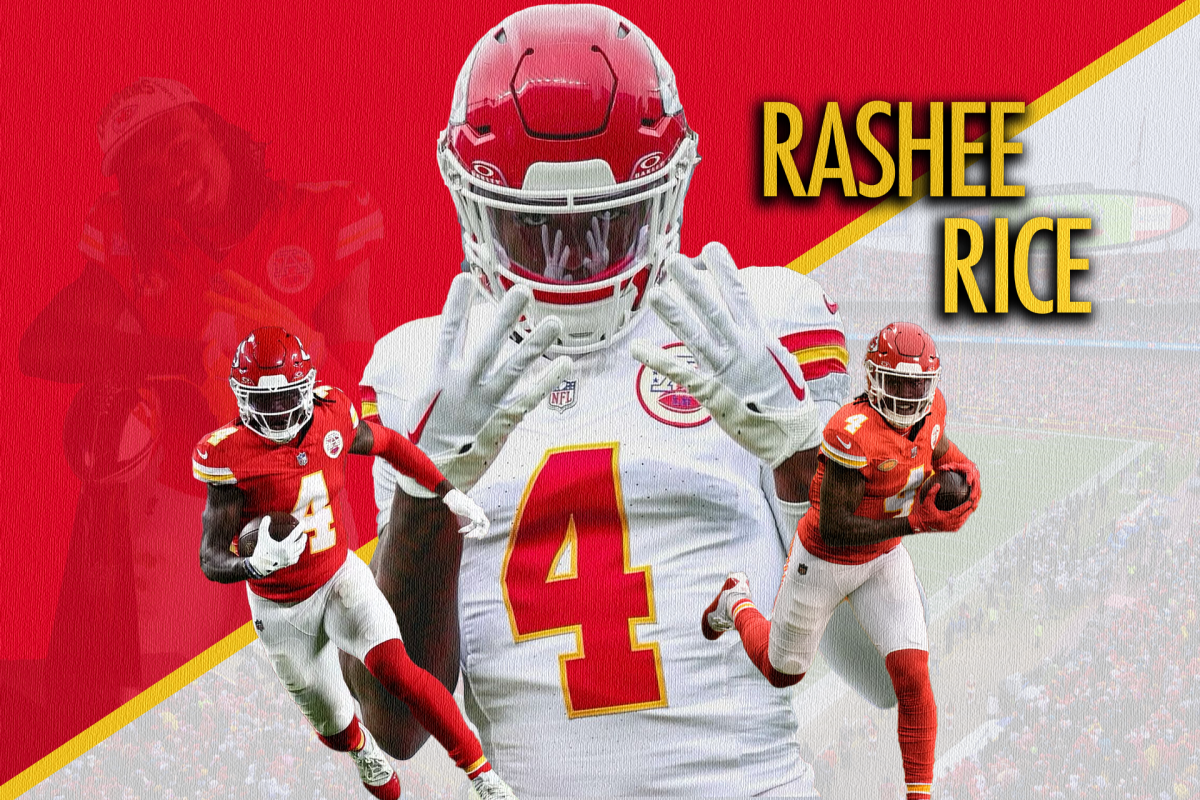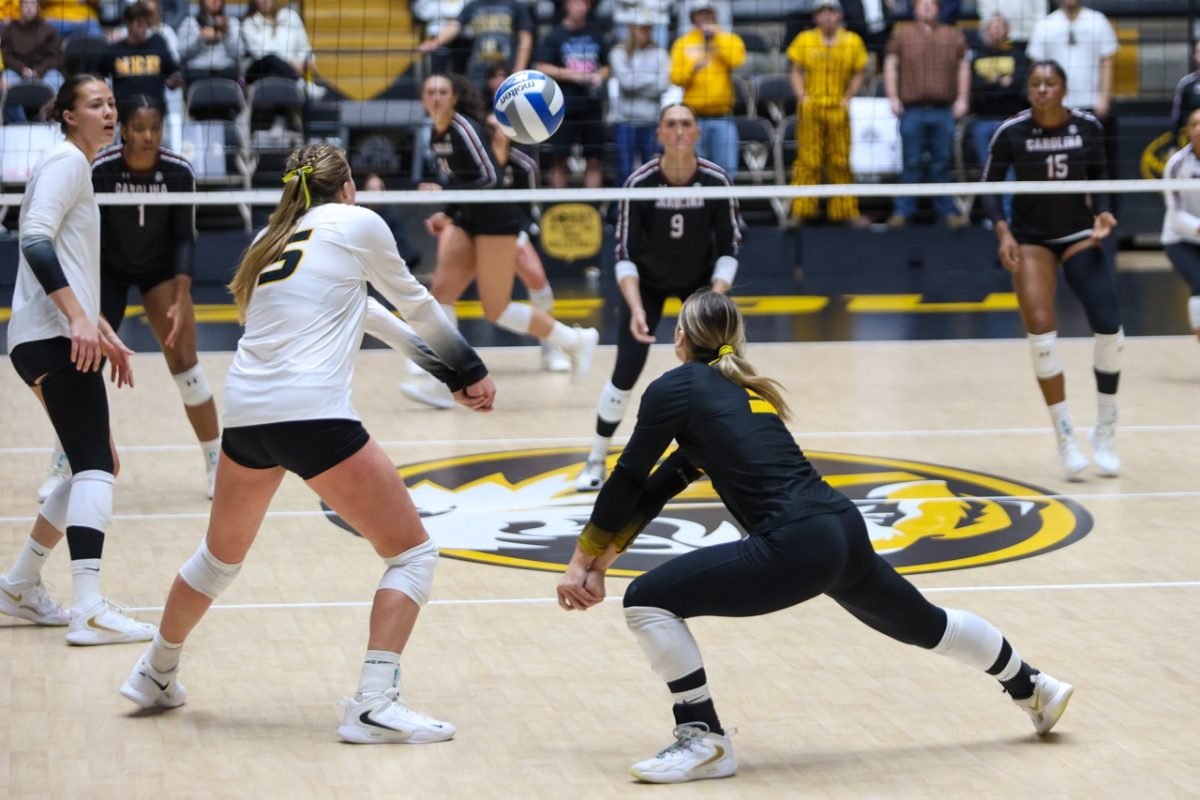The Lions offense scored less points than the Chiefs offense, yet the Chiefs still ended up losing the game as a result of their offense.
Graphic by Isaac Lewis

Dating back to 2013, when Andy Reid took over as the head coach of the Kansas City Chiefs, the Chiefs have almost never lost in week one. Known for getting his teams to start the season hot, Reid entered 2023’s opener against the Detroit Lions with a 9-1 record in week one games as the Chiefs head coach. With quarterback Patrick Mahomes, the Chiefs were 5-0 in week one games, scoring over 30 points in each game and recording 44 points in their most recent week one game against the Arizona Cardinals in 2022. It’s safe to say that winning in week one had become a tradition in the Chiefs Kingdom.
Not quite.
Following the unveiling of their Super Bowl LVII Championship Banner, the Chiefs took the field and at the game’s conclusion left it having been upset by the Lions in a 21-20 loss. It was the first week one loss of the Mahomes era. Granted the Chiefs were without Travis Kelce and Chris Jones, two All-Pro First Team members in 2022 The loss still left a sour taste in the mouths of many who left with concerns for the reigning champs.
“It’s embarrassing for me to lose any time,” Mahomes said in his postgame presser.
What actually resulted in the “embarrassing” loss for the Chiefs?
Wide Receivers and Skill Position Group
The most obvious problem on display was the lack of talent in the Chiefs’ skill position group, especially without tight end Kelce on the field, who suffered a hyperextended knee in practice two days before the game.
The Chiefs as a whole had eight drops. Four of them came off the hands of Kadarius Toney, with one resulting in a pick-six. The other drop stopped the conversion of a crucial third-and-2 in the red zone, and another prevented the Chiefs from advancing to field goal range in the closing minutes. One could argue that Toney cost the Chiefs the win entirely by himself.
Aside from the drops, there were other issues. Communication errors led to routes being run improperly. Mahomes, despite having a lot of time to throw, had nowhere to throw the football because most of the pass catchers were struggling to create separation. One of the most prevalent examples of the issue arised on a crucial third-and-2in the red zone, where Richie James ran in front of Kadarius Toney, resulting in a drop.
With Kelce, it’ll be a lot easier for the Chiefs to move the ball and for the rest of the pass catchers to get open, but the reliability of the skill position group feels close to non-existent.
Short Yardage Offensive Playcalling
Reid is one of, if not the greatest, offensive play callers in the history of football, but his short yardage and fourth down decision making played a factor in the Chiefs losing this game.
In two drives that ultimately resulted in field goals, analytics suggested that Reid take the risk on the fourth down, but instead he took the three points. In the plays that led to the fourth down on the first field goal, Reid called for consecutive pass plays with two yards to gain on the second and third down. During the second field goal, on a second down with one yard to gain, he called an end around to Toney, in a one yard loss. On the following third down Reid went to the air, resulting in an incompletion.
The worst example came at the most dire time. In the Chiefs second to last offensive drive, Reid called for another end around. This time to Rashee Rice on a third down with one yard to gain following a direct snap to Blake Bell.
Reid is always one to think outside of the box, and more often than not that enhances his playcalling, but in short yardage situations it’s come to bite him several times. He often tries to put the defense in a bind by calling a trick play or something other than a designed run when needing to gain under three yards, but often times it doesn’t go in his favor as teams are used to this strategy from him and it’s not as effective as running the ball.
The Chiefs haven’t run a QB sneak with Mahomes at quarterback ever since he suffered a dislocated kneecap in a 2019 game against the Broncos, but it’s something they should look into, as it’s the most successful play in those situations.
Run Blocking and Execution
The Chiefs were able to get little to nothing going on the ground all game, and the blocking has a large share of the blame for that. On designed runs, the Chiefs mustered 45 yards on 17 carries; good for 2.6 yards per carry.
On inside runs, blockers missed on assignments and were unable to consistently create gaps for runners to fit through. On outside runs, the edge rushers were able to quickly disengage from Right Tackle Jawaan Taylor and Left Tackle Donovan Smith. This left the other outside blockers unable to prevent the linebackers and secondary players from getting in the box quickly, which resulted in run plays with minimal gain.
Most of Isiah Pacheco’s rushing attempts came on outside zone runs, but he wasn’t able to muster a ton of yardage as a result of the poor initial blocking by the tackles. For a team that had one of the best run blocking units from a season ago, it was surely a disappointing performance.
Edited by Chase Gemes | cgemes@admin
Copy Edited by Sterling Sewell | [email protected]



















